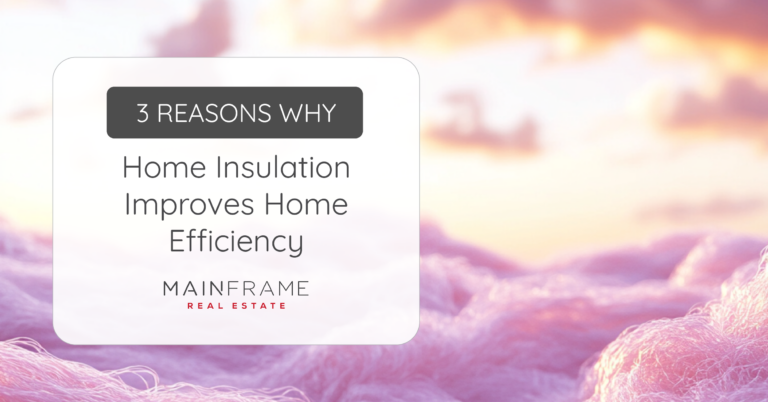When it comes to improving home efficiency, few upgrades offer the value and performance of proper insulation. Whether you’re looking to cut costs, increase comfort, or reduce your environmental impact, insulation checks every box. For homeowners thinking about long-term value and smart eco-conscious choices, this is a simple improvement with lasting impact.
1. Lower Your Energy Bill
Insulation is one of the most powerful tools for reducing heating and cooling costs. According to ENERGY STAR, sealing air leaks and adding insulation in key areas such as attics and floors can save homeowners an average of 15% on heating and cooling expenses—or about 11% on total energy bills (ENERGY STAR). Properly installed insulation creates a thermal barrier that keeps warm air in during the winter and blocks it out in the summer. In fact, the U.S. Environmental Protection Agency reports that insulation saves over 600 times more energy annually than compact fluorescent lights, Energy Star appliances, and Energy Star windows combined (EPA).
2. Long Term Investment
Unlike many home improvements, insulation doesn’t need to be replaced often. It lasts for decades with little to no maintenance while continuing to cut energy use every year. The Insulation Institute highlights that for every BTU of energy consumed to produce insulation, 12 BTUs are saved by using it—making insulation one of the most efficient energy-saving upgrades available (Insulation Institute). BTUs or British Thermal Unit, is a unit of energy that measures the amount of heat needed to raise the temperature of one pound of water by one degree Fahrenheit. Not only does insulation reduce your utility costs, but it also decreases your home’s carbon footprint, making it a smart, eco-conscious upgrade.
3. Indoor Climate Control
Insulation does more than just lower energy bills. It contributes to a more comfortable and peaceful home environment. Insulation improves indoor air quality, blocks outside noise, and helps regulate indoor humidity. These benefits are especially noticeable in busy urban areas or extreme climates. To achieve optimal results, homeowners should consult with a certified insulation contractor to determine the right insulation type and R-value for their home. The higher the R-value, the more effective the material is at resisting heat flow.
Conclusion
Whether you’re prepping a home for sale or investing in long-term value, upgrading insulation is one of the smartest decisions you can make. It’s cost-effective, environmentally responsible, and provides year-round benefits in energy savings and comfort. With expert guidance and proper installation, your insulation upgrade will continue to pay off—season after season, year after year.


